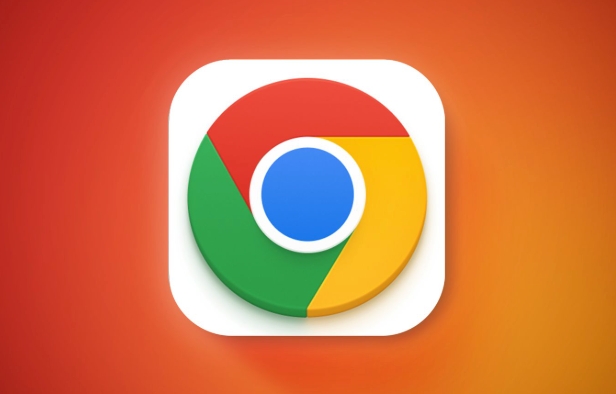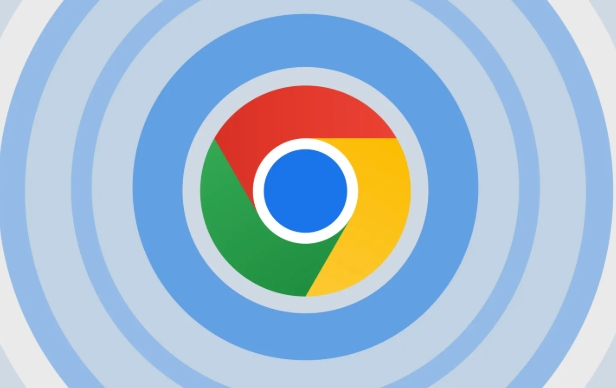Uninstalling and reinstalling Chrome requires cleaning of residual data and checking the installation settings. 1. When uninstalling, Windows users uninstall and delete user data through the control panel; Mac users need to drag the application away and manually delete the ~/Library/Application Support/Google folder; Linux users uninstall and clear the configuration with terminal commands; and close the auto-start item at the same time. 2. When downloading and installing, you should get the latest version from the official website, pay attention to the installation path, account synchronization and whether it is set as the default browser. 3. If the extension is not restored after reinstallation, you need to check the account login and synchronization status; the browser slows down and disables the excess extension; the home page or search engine abnormality needs to be checked for third-party software tampering, and regularly clean the cache or use privacy mode to test.

It is actually not difficult to uninstall and reinstall Google Chrome, but many people tend to ignore some details when operating, such as whether to retain personal data, how to completely remove residual information, etc. If you encounter a browser stutter, crash, or want to change to a cleaner usage environment, this process is very practical.

1. How to completely uninstall Chrome
Uninstalling Chrome is not just about deleting shortcuts. The key is to clean up all residual data to avoid affecting the subsequent reinstallation process.

- Windows users : Open Control Panel → Programs and Features, find Google Chrome, and click Uninstall. Remember to check "Yes" when prompted to delete user data.
- Mac users : Exit Chrome first, then drag Chrome from the application to the Trash, and empty the Trash. Then manually go to
~/Library/Application Support/Googleto delete the entire folder (the cache and configuration are stored here). - Linux users : Use the terminal to run the command
sudo apt purge google-chrome-stable(adjust the command according to your distribution), and you can clear the configuration file at the same time.
Don't forget to check whether Chrome's auto-start settings are still available in the system startup item, and turn them off if possible.
2. Download and install the latest version of Chrome
After confirming that the old version is completely uninstalled, you can go to the official website to download the latest version of Chrome installation package. It is recommended to download it from the official Google page to avoid third-party channels that may include plug-ins or bundled software.

There are a few small points to pay attention to during the installation process:
- Try not to select the system root directory for the installation path, so as to facilitate future management.
- If you have logged into your Chrome account before, the bookmarks, extensions and other data will be automatically synchronized after the installation is completed, provided that you still remember the password.
- There is an option in the installation interface: "Set as default browser", just select it as needed, without force.
3. Frequently Asked Questions After Reinstallation
After reinstalling, there are some situations you may encounter:
- The extension has not been restored? Maybe it is because you don’t have a login account or the synchronization function is not enabled, go to "Settings" → "Synchronization and Google Services" to check.
- Is the browser slowing down again? Maybe there are too many extensions in the background that are automatically restored, so enter the "Extensions" page to disable or delete unnecessary ones.
- Has the homepage or search engine changed? Some third-party software will secretly change the settings after you reinstall it. Remember to check the default search engine and homepage address in "Settings".
If you want to keep it refreshed, consider cleaning the cache regularly or testing the web pages using the private browsing mode.
Basically that's it. The entire process is not complicated, but special attention should be paid to data cleaning during the uninstallation stage and setup check after installation. Sometimes, what seems simple can avoid a lot of trouble by spending a few more minutes.
The above is the detailed content of How to uninstall and reinstall Google Chrome. For more information, please follow other related articles on the PHP Chinese website!

Hot AI Tools

Undress AI Tool
Undress images for free

Undresser.AI Undress
AI-powered app for creating realistic nude photos

AI Clothes Remover
Online AI tool for removing clothes from photos.

Clothoff.io
AI clothes remover

Video Face Swap
Swap faces in any video effortlessly with our completely free AI face swap tool!

Hot Article

Hot Tools

Notepad++7.3.1
Easy-to-use and free code editor

SublimeText3 Chinese version
Chinese version, very easy to use

Zend Studio 13.0.1
Powerful PHP integrated development environment

Dreamweaver CS6
Visual web development tools

SublimeText3 Mac version
God-level code editing software (SublimeText3)

Hot Topics
 Google Chrome Speed ??Browser Official Edition Portal
Jul 08, 2025 pm 02:30 PM
Google Chrome Speed ??Browser Official Edition Portal
Jul 08, 2025 pm 02:30 PM
Google Chrome is a free and fast multi-platform web browser developed by Google. It is known for its speed, stability and reliability. Chrome is based on the open source Chromium project and is widely used on devices such as desktops, laptops, tablets and smartphones. The browser has a clean interface and a wide range of customizable options, allowing users to personalize it according to their preferences. In addition, Chrome has a huge library of extensions that provide additional features such as ad blocking, password management and language translation, further enhancing the browsing experience.
 How to install Chrome extensions on mobile (Kiwi, etc.)
Jul 11, 2025 am 12:50 AM
How to install Chrome extensions on mobile (Kiwi, etc.)
Jul 11, 2025 am 12:50 AM
Android phones can install Chrome extensions through KiwiBrowser. KiwiBrowser is an open source browser based on Chromium on the Android side. It supports the installation of the Chrome Web Store extension. The process is: Open Kiwi and enter the Chrome store, search for extensions, and click "Add to Chrome" to complete the installation; when using it, you need to pay attention to network stability, extension compatibility, permission granting and installation quantity; other alternatives include FirefoxMobile and YandexBrowser, but Kiwi is still the most stable and convenient choice at present.
 How to change the user agent string in Safari without extensions?
Jul 11, 2025 am 12:48 AM
How to change the user agent string in Safari without extensions?
Jul 11, 2025 am 12:48 AM
On macOS, you can modify Safari's UserAgent through developer tools or terminals, but iOS/iPadOS does not support it. The specific methods are: 1. Use the developer tools to modify temporarily: select preset UA after enabling the development menu; 2. Permanent modification through the terminal: enter the command to write a custom UA; 3. iOS/iPadOS cannot be modified directly, and it needs to rely on a third-party application or browser.
 What firewall ports does Chrome Remote Desktop use
Jul 13, 2025 am 12:43 AM
What firewall ports does Chrome Remote Desktop use
Jul 13, 2025 am 12:43 AM
ChromeRemoteDesktopusesport443(HTTPS)astheprimaryportforsecureconnections,andoccasionallyport80(HTTP)asafallback.ItalsoleveragesSTUN,TURN,andICEprotocolstoestablishpeer-to-peerconnections,withTURNactingasarelayifdirectconnectionsfail.Toensuresmoothop
 How to view chrome incognito history?
Jul 09, 2025 am 12:31 AM
How to view chrome incognito history?
Jul 09, 2025 am 12:31 AM
Chrome's incognito browsing history cannot be viewed directly, but it can be obtained indirectly through three methods. 1. Use command line tools to view the DNS cache, which can only obtain some domain name information and is not durable; 2. Check the router or network monitoring log, which requires certain network knowledge and depends on network settings; 3. Install third-party monitoring tools and configure in advance to record invisible browsing behavior. Overall, the invisibility mode is designed to protect privacy. All the above methods have limitations. It is recommended to choose whether to use monitoring methods based on actual needs.
 How to force quit Google Chrome on Mac
Jul 07, 2025 am 12:14 AM
How to force quit Google Chrome on Mac
Jul 07, 2025 am 12:14 AM
There are several ways to force exit from unresponsive Chrome on your Mac. First, use the keyboard shortcut Command Option Esc to open the "Force Exit Application" window, select Google Chrome and click "Force Exit". Second, click on the Apple menu, select "Force Exit", and select Chrome from the list and confirm quit. If Chrome completely freezes or consumes too much memory, you can open ActivityMonitor, find all Chrome-related processes, and click the X button one by one to end them. Finally, as an alternative, you can enter killallGoogle\Chrome in Terminal
 How to simulate different timezones in Chrome
Jul 13, 2025 am 12:19 AM
How to simulate different timezones in Chrome
Jul 13, 2025 am 12:19 AM
To test page behavior in different time zones in Chrome, there are three ways to do it. 1. Use ChromeDevTools to simulate the time zone: Open DevTools → Click on three points → MoreTools → Sensors, check the overlay option in the DateandTime section and select the target time zone. This setting only takes effect in the current session; 2. Specify the time zone through the command line startup parameters: close all Chrome instances and execute chrome.exe--timezone="target time zone" to affect the entire browser instance; 3. Use JavaScript to overwrite the behavior of the Date object, and the fixed time value is used to accurately control the JS time.
 How to stop Microsoft Edge from running in the background
Jul 16, 2025 am 12:34 AM
How to stop Microsoft Edge from running in the background
Jul 16, 2025 am 12:34 AM
There are four ways to turn off Microsoft Edge backend running. 1. Disable background running in Edge settings: Go to "Settings" → "System" and turn off the "Run Microsoft Edge in the background" option. 2. Close Edge in Windows startup item: Through the "Startup" tab of Task Manager, right-click Edge and select "Disable". 3. Modify the group policy or registry: Advanced users can create BackgroundModeEnabled registry key and set it to 0, or use the official group policy template. It is recommended to back up the system before operation. 4. Use Task Manager to manually end the process: temporary emergency plan, press Ctrl Shift Esc to open the Task Manager to end all Es






